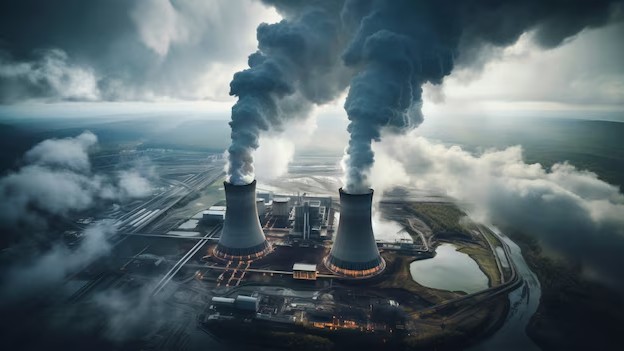Nuclear power has assumed a greater importance in the government’s green agenda. This was reflected in the Union Budget 2025–26 presented on February 1 as the Finance Minister Nirmala Sitharaman announced to allocate Rs 20,000 crore for research and development (R&D) in small modular reactors (SMR) and operationalise at least five indigenously developed SMR by 2033. The intention to give nuclear power a push is also reflected in the government’s intention to amend the Indian Atomic Energy Act and Civil Liability for the Nuclear Damage Act to include private sector participation.
The government has set the target of reaching 100 GW nuclear energy capacity by 2047 under the nuclear energy mission. This marks a significant leap forward compared to the government’s commitment from last year. In the Budget 2024–25, the government pledged to partner with the private sector for R&D of new technologies in this space and setting up Bharat small reactors.
Oneeka Medh, research analyst, Samco Securities is optimistic . She said, “The focus on indigenous development of SMRs will not only boost energy security but also foster advancements in technology and innovation.”
Essential for Energy Transition
Nuclear energy is comparatively a cheaper and a reliable non-fossil fuel source of energy generation. In the Economic Survey 2024–25, the Chief Economic Advisor to the Government of India, V Anantha Nageswaran emphasised on the importance of nuclear energy in India’s transition to a low-carbon economy.
Currently, nuclear contributes only 2.49% to the total energy generation from the non-fossil fuel sources in India. Although, the progress in the country is slow, the Budget announcement is expected to increase the pace of expansion. Shailesh Tyagi, partner, climate change and sustainability leader at Deloitte South Asia said, “It signals a strong push to scale up the current nuclear contribution in the national energy mix.”
In India, Nuclear Power Corporation of India (NPCIL), an entity under the Ministry of Atomic Energy which operates India’s current fleet of nuclear power plants, for the first time made a formal move to decentralise the country’s nuclear power sector by inviting investments from private companies to set up Bharat small reactors. Last year, NPCIL commissioned two units of 700MW capacity in a nuclear power station in Gujarat after six years and now plans to commission one nuclear reactor per year.
Tata Power is among the first private player which plans to enter the sector. Reliance Industries, L&T, Adani Group and Vedanta are also reportedly planning to invest in nuclear power.
What’s Driving the Push?
Globally, countries have begun to embrace nuclear power again to meet their net zero targets. Since the large modular reactors pose safety concerns, small modular nuclear reactors are increasingly developed by countries.
Given the large uninterrupted electricity requirements to power data centres with artificial intelligence (AI) servers and graphic processing units, the big tech companies have started to shift to nuclear energy. Google has recently ordered six or seven nuclear power reactors to generate power required for rising use of AI. Amazon quickly followed suit by announcing to invest in small nuclear reactors. Microsoft and Oracle are among the other big tech companies to opt for nuclear energy to power their data centres.
India, as of now, has about 150 data centres including those of Amazon Web Services, Google Cloud, Microsoft Azure, Nxtra Data. New data centres have also been established in the recent past by companies like Yotta, Digital Connexion and CapitalLand. Data centres in India are rapidly expanding capacity due to increasing demand of AI and generative AI projects and rising digitalisation.
“Budget announcement will go a long way towards increasing investment in this space. We expect several industries, including both traditional hard-to-abate sectors and the new-age users of power—data centres to start evaluating investments in this space,” said Ashwin Jacob, partner, Deloitte India.
The need for nuclear power is set to rise as more data centres are being established across India, leading to increased private sector investments. While the world has picked up pace in embracing the forgotten source of non-fossil fuel energy, India has a long way to go. If the government continues to support the technology, nuclear energy will take the centre stage in India’s energy mix across sectors.



